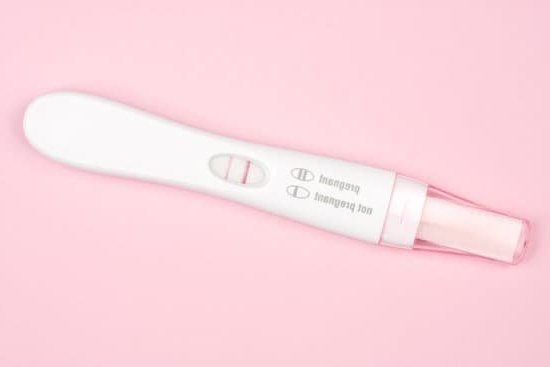Pregnancy tests are often the first step in confirming one’s pregnancy status, but the question on many minds remains: “Does pregnancy test can be wrong?” The accuracy of these tests can significantly impact crucial life decisions, making it essential to understand their reliability. In this article, we will delve into the intricate world of pregnancy testing, shedding light on how they work, their reliability rates, common reasons for false results, and when is the best time to take them.
Understanding the science behind pregnancy tests is key to comprehending their accuracy. By exploring the mechanisms at play in these tests, individuals can gain insight into how they detect the presence of hCG hormone in urine or blood samples. This knowledge forms the foundation for assessing the reliability of various types of pregnancy tests available in the market today. Whether opting for traditional urine tests or digital versions, knowing their effectiveness is crucial in obtaining trustworthy results.
Despite advancements in medical technology, there are instances where pregnancy tests can provide incorrect readings. Factors such as expired test kits, improper usage, or underlying health conditions can lead to false positive or negative results.
Recognizing these potential pitfalls and learning when to seek medical advice are vital steps in navigating the complexities of pregnancy testing accurately. Stay tuned as we explore further into why these tests can sometimes falter and what steps you can take if you suspect a wrong result.
How Do Pregnancy Tests Work
Pregnancy tests work by detecting the presence of a hormone called human chorionic gonadotropin (hCG) in a woman’s urine or blood. This hormone is produced by the placenta shortly after a fertilized egg attaches to the uterine lining.
Home pregnancy tests are designed to be sensitive to hCG levels in the body, typically detecting the hormone at levels of 25 mIU/mL or lower. On the other hand, blood tests conducted at a healthcare provider’s office can detect hCG at levels as low as 5 mIU/mL, making them more sensitive than most home pregnancy tests.
There are two main types of home pregnancy tests: urine-based tests and digital tests. Urine-based pregnancy tests typically involve holding an absorbent test strip under your urine stream or dipping it into a cup of collected urine.
Digital tests display results as either “pregnant” or “not pregnant,” eliminating any confusion that may arise from interpreting faint lines on traditional test strips. Both types of home pregnancy tests work by reacting to hCG present in urine samples, providing accurate results within minutes.
It is essential to understand that while home pregnancy tests are generally accurate when used correctly, there are instances where they can provide incorrect results. Factors such as taking the test too early, using an expired test kit, improper testing technique, or certain medications can affect the accuracy of the results.
In such cases, it is important to follow up with a healthcare provider for further testing to confirm whether you are pregnant or not. Consulting with a medical professional can help address any concerns and provide clarity regarding your pregnancy status if you suspect that your home pregnancy test may be wrong.
| Pregnancy Test Type | Sensitivity |
|---|---|
| Urine-Based Test | 25 mIU/mL or lower |
| Blood Test | 5 mIU/mL |
The Reliability of Pregnancy Tests
Types of Pregnancy Tests
There are various types of pregnancy tests available on the market, including urine-based tests and blood tests. Urine-based tests, which are the most common, detect the presence of human chorionic gonadotropin (hCG) hormone in the urine. On the other hand, blood tests measure the levels of hCG in the bloodstream. Both types of tests can provide accurate results, but the sensitivity levels may vary.
Accuracy Rates
Typically, pregnancy tests claim to be over 99% accurate when used correctly. However, this accuracy rate can vary depending on factors such as how well the test is performed and at what point in the pregnancy it is taken. In general, home pregnancy tests are more accurate when taken after a missed period.
It is essential to note that no test is perfect, and there is always a margin for error. Factors such as expired tests, improper usage, or certain medications could impact the accuracy of the results. Additionally, some studies have suggested that certain brands of pregnancy tests may have higher rates of false positives or negatives compared to others.
Considerations for Accuracy
To increase the chances of obtaining an accurate result from a pregnancy test, it is crucial to follow the instructions provided with the test carefully. It is also recommended to use a test with high sensitivity levels if testing early on in pregnancy. If there are doubts about the results obtained from a home pregnancy test, consulting with a healthcare provider for further testing and confirmation is advisable.
Reasons Why Pregnancy Tests Can Give False Results
Pregnancy tests are a vital tool for individuals who are trying to conceive or suspect they may be pregnant. However, as reliable as these tests may be, there are instances where they can provide inaccurate results. Understanding the factors that can lead to false results is crucial in order to interpret test outcomes correctly and make informed decisions.
Several factors can contribute to a pregnancy test giving a false result. One common reason is taking the test too early. Most home pregnancy tests detect the presence of the hormone hCG, which is only produced by the placenta after implantation has occurred. If you take a test too soon after conception, there may not be enough hCG in your system to trigger a positive result.
Another factor that can lead to inaccurate results is not following the instructions properly. Whether it’s not using enough urine on the test stick, misinterpreting the results, or testing at the wrong time of day, not adhering to the guidelines provided with the pregnancy test could affect its accuracy. Additionally, expired or faulty tests can also produce unreliable results. It’s essential to check the expiration date and ensure that the packaging is intact before using a pregnancy test.
Furthermore, certain medications or medical conditions can interfere with pregnancy test results. Fertility treatments containing hCG or other hormones, certain medications like antihistamines and tranquilizers, and conditions such as ovarian cysts or ectopic pregnancy can all impact the outcome of a pregnancy test. If you suspect any of these factors might be affecting your test result, it is advisable to consult with a healthcare professional for further guidance on how to proceed.
When to Take a Pregnancy Test
One important aspect to consider when taking a pregnancy test is the timing of the test. The accuracy of a pregnancy test greatly relies on when it is taken in relation to the woman’s menstrual cycle. Most pregnancy tests claim to be over 99% accurate if taken after a missed period.
This is because the levels of hCG, the hormone detected in pregnancy tests, are usually high enough to be detected in urine at this point. However, some sensitive tests can detect hCG earlier, even before a missed period.
It is generally recommended to wait until after you have missed your period to take a pregnancy test for more accurate results. Taking a test too early can increase the chances of receiving a false negative result.
The best time to take a pregnancy test is in the morning when your urine is more concentrated and likely to contain higher levels of hCG if you are pregnant. Additionally, following the instructions on the pregnancy test kit carefully and checking the expiration date of the test can also impact its accuracy.
Consulting with your healthcare provider if you are unsure about when to take a pregnancy test can provide valuable guidance tailored to your individual circumstances. They can help determine the best time for you to take a test based on factors such as irregular periods or fertility treatments that may affect your hormone levels and impact the accuracy of the results. Seeking medical advice ensures that you receive accurate information and proper support throughout your pregnancy journey.
| Importance of Timing | Key Points |
|---|---|
| Waiting until after missed period | Increases accuracy |
| Morning testing | Higher concentration of hCG |
| Consulting healthcare provider | Personalized guidance for accurate testing |
Steps to Take if You Receive a Wrong Result
Check the Expiration Date and Follow Instructions
If you find yourself in a situation where you suspect that your pregnancy test result is incorrect, it is essential to first check the expiration date of the test. Using an expired test can lead to inaccurate results. Additionally, make sure to carefully read and follow the instructions provided with the pregnancy test kit. Not following the correct procedures can also affect the accuracy of the results.
Retake the Test
If you receive a result that you believe may be wrong, it is recommended to retake the test. It is advised to wait a few days before taking another test as this allows more time for the pregnancy hormone hCG to accumulate in your system if you are indeed pregnant. Retaking the test with a fresh kit can help confirm or clarify any uncertainties from previous results.
Consider Alternative Testing Methods
In cases where there is still doubt regarding the accuracy of a traditional home pregnancy test, consider seeking alternative testing methods such as blood tests at a healthcare provider’s office or ultrasound scans. These methods are generally more reliable in detecting early pregnancy and can provide clearer answers if there are concerns about false results from home tests. Consulting with a medical professional can offer peace of mind and additional guidance on next steps moving forward.
By following these steps and considering alternative testing methods when necessary, individuals can navigate potential inaccuracies in pregnancy test results and make well-informed decisions regarding their reproductive health. Remember that while false positives or negatives on pregnancy tests can occur, taking appropriate actions can help clarify any uncertainties during this important time.
Seeking Medical Advice
Pregnancy is a significant event in a person’s life, and accurate pregnancy testing is crucial for making informed decisions about one’s health and future. While home pregnancy tests are convenient and easy to use, there is always the possibility that they can provide incorrect results.
This raises the question: does a pregnancy test can be wrong? It is essential to understand the factors that may contribute to inaccurate results and know when it is necessary to seek medical advice for confirmation.
There are several reasons why a pregnancy test may give false results, such as using an expired test kit, not following the instructions correctly, or testing too early or too late in the menstrual cycle. Additionally, certain medications or medical conditions can also affect the reliability of the test. Therefore, if there is any doubt about the accuracy of a home pregnancy test result, it is recommended to consult with a healthcare professional for further evaluation.
When seeking medical advice for confirmation of a pregnancy test result, it is important to schedule an appointment with a doctor or healthcare provider. During this visit, the healthcare professional may perform additional tests, such as blood work or ultrasound scans, to confirm whether or not you are pregnant.
They can also discuss any concerns or questions you may have regarding your situation and provide guidance on next steps based on the confirmed results. Remember that healthcare professionals are trained to provide accurate information and support during this critical time.
Conclusion
In conclusion, the accuracy of pregnancy tests is crucial in making informed decisions about one’s reproductive health. While the majority of pregnancy tests are reliable, there are instances where false results can occur.
Factors such as using an expired test, testing too early or late in the menstrual cycle, and certain medications can all contribute to inaccuracies in test results. It is essential to follow the instructions carefully and be aware of these potential pitfalls when taking a pregnancy test.
If you suspect that your pregnancy test results may be wrong, it is important not to panic. There are steps you can take to determine the accuracy of the test, such as retesting with a different brand or seeking confirmation from a healthcare professional. By consulting with a doctor or medical provider, you can receive proper guidance on next steps and confirm whether or not you are pregnant.
Ultimately, accurate and reliable pregnancy testing is crucial for individuals who are trying to conceive or avoid pregnancy. Knowing when to take a pregnancy test and understanding the factors that can impact its reliability are key components in ensuring that you receive trustworthy results.
By staying informed and seeking medical advice when needed, you can make informed decisions about your reproductive health with confidence. If in doubt remember “does pregnancy test can be wrong“, but consulting with healthcare providers will help clarify any uncertainties.
Frequently Asked Questions
How Common Is It for a Pregnancy Test to Be Wrong?
Pregnancy tests are generally accurate when used correctly, but errors can occur due to various factors. False negatives are more common than false positives, often resulting from testing too early or not following instructions properly.
Can a Pregnancy Test Make a Mistake?
While rare, pregnancy tests can make mistakes due to human error or faulty test kits. It’s essential to check the expiration date, carefully read the instructions, and conduct the test at the right time of day for optimal accuracy.
Can Pregnancy Test Be True Negative?
A true negative result on a pregnancy test is possible when conducted after a missed period and following all guidelines accurately. Factors like diluted urine or testing too early can lead to false-negative results, so it’s crucial to retest if in doubt.

Welcome to my fertility blog. This is a space where I will be sharing my experiences as I navigate through the world of fertility treatments, as well as provide information and resources about fertility and pregnancy.





